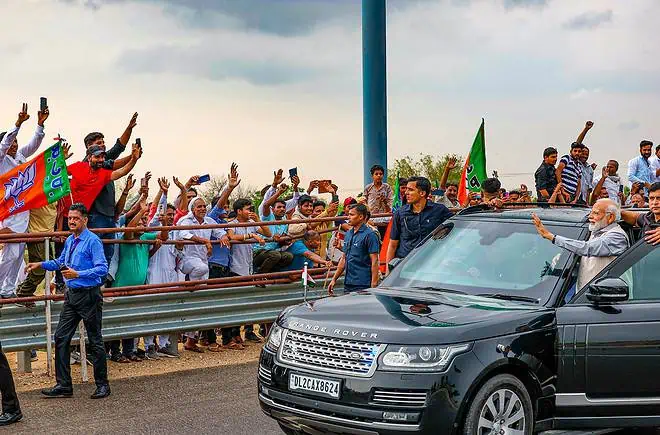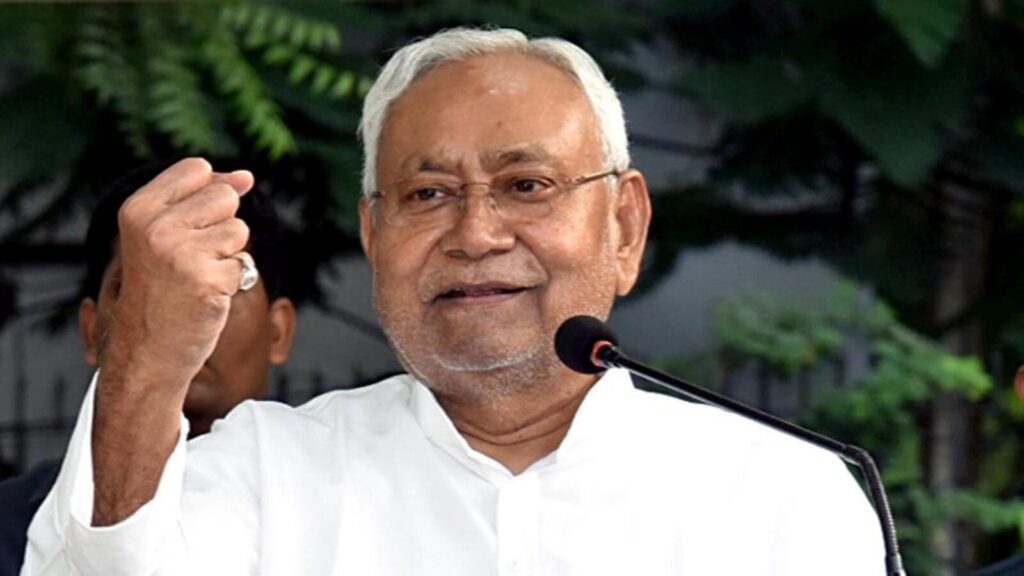From Deshnok Temple to Nal Airbase: How PM Modi’s Visit Blended Development with a Strong Message on National Security
Prime Minister Narendra Modi’s visit to Bikaner, Rajasthan, on May 22, 2025, wasn’t just a routine political engagement. It was a strategic mix of cultural reverence, infrastructure development, and bold national security assertions. From seeking blessings at the sacred Karni Mata Temple in Deshnok to inaugurating multi-crore infrastructure projects and issuing stern warnings to Pakistan post-Operation Sindoor, the visit carried deep political and diplomatic weight.
What Were the Key Activities of PM Modi’s Bikaner Visit?
PM Modi began his day with prayers at the renowned Karni Mata Temple in Deshnok, a sacred site revered by millions. This spiritual start symbolized respect for Rajasthan’s deep-rooted cultural heritage and tradition before launching into major development initiatives.
The redeveloped Deshnoke railway station, redesigned under the Amrit Bharat Station Scheme, was inaugurated by PM Modi. The station, inspired by temple architecture, aims to boost tourism and pilgrim travel, especially to the Karni Mata shrine. Simultaneously, Modi inaugurated 103 Amrit Stations across 86 districts in 18 states and UTs, making this a pan-India push for railway modernization.
He also flagged off the Bikaner-Mumbai Express and laid the foundation stone for developmental projects worth over ₹26,000 crore. These span across:
Railways: Expansion and modernization
Roadways: New highways and bypass routes
Power and Renewable Energy: Solar and wind energy projects
Water Supply: Irrigation and drinking water schemes
These projects aim to transform Rajasthan’s infrastructure, create jobs, and support economic growth.
#WATCH | Bikaner, Rajasthan | Prime Minister #NarendraModi inaugurates the redeveloped Deshnoke Station under the Amrit Bharat Station Scheme and flags off the Bikaner-Mumbai express train.
— Argus News (@ArgusNews_in) May 22, 2025
He will lay the foundation stone, inaugurate and dedicate to the nation multiple… pic.twitter.com/WH8SXfrsnS
What National Security Message Did PM Modi Deliver in Bikaner?
PM Modi’s visit to Nal Air Force Station, a key strategic base in Bikaner, was a show of solidarity with the Armed Forces. This airbase was a target of Pakistani retaliation during India’s Operation Sindoor, but Indian defenses successfully thwarted all attacks. By interacting with soldiers there, the Prime Minister reinforced morale and India’s commitment to national defense.
Bikaner, Rajasthan: Prime Minister Narendra Modi says, "The double-engine government is working rapidly for the industrial development of Rajasthan. Bhajan Lal ji’s government has introduced new industrial policies for various sectors here. Bikaner will also benefit from these… pic.twitter.com/CLVROG2tEp
— IANS (@ians_india) May 22, 2025
During a rally, PM Modi made powerful statements about India’s stance on cross-border terrorism and Pakistan: He said India would respond more fiercely than ever before to any future attacks. He declared Pakistan’s Rahim Yar Khan airbase was now “in ICU”, showcasing the success of Indian airstrikes. He explained that Operation Sindoor was not just retaliation but a new doctrine of justice. “Sindoor turned barood” – signifying how India’s peace was now backed by powerful deterrence. He also defended the suspension of the Indus Water Treaty, saying India will not let a single drop of its rightful water flow to Pakistan.
PM Modi warned Pakistan that talks or trade are off the table, except discussions on Pakistan-occupied Kashmir (PoK). These remarks reflect a new strategic clarity in India’s Pakistan policy – zero tolerance for terror, no compromise on territorial integrity.
What Is the Political and Developmental Impact of the Visit?
PM Modi was warmly received during his Bikaner visit, both politically and by the public. Rajasthan Chief Minister Bhajanlal Sharma formally honored him at the development project launch, and the rally witnessed large crowds, reflecting strong public support. This enthusiasm underscores the growing resonance of the government’s dual focus on infrastructure growth and national security. Politically, the visit comes at a crucial time, with Operation Sindoor still vivid in public memory. By reinforcing a nationalist sentiment and emphasizing India’s firm stance against Pakistan, Modi’s messaging consolidates the BJP’s position as a party strong on defense. Simultaneously, the unveiling of major infrastructure projects reinforces the Prime Minister’s development-first approach, effectively merging economic progress with strategic security. Furthermore, Modi’s assertive comments on the Indus Water Treaty and Pakistan-occupied Kashmir (PoK) underline a long-term geopolitical vision, sending a clear message that national interest and territorial integrity remain non-negotiable. Together, these elements strengthen the BJP’s narrative ahead of upcoming elections, aligning development goals with decisive leadership on national security.
PM Modi’s Bikaner visit was not merely ceremonial—it was symbolic and strategic. From invoking faith at Deshnok, to delivering developmental push worth thousands of crores, and issuing clear redlines to Pakistan, the visit sent a powerful message domestically and internationally. It showcased India’s dual commitment: developing its people and defending its borders with unwavering resolve.





















